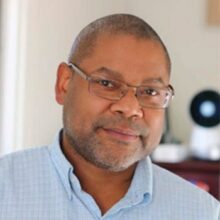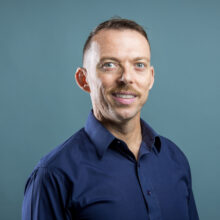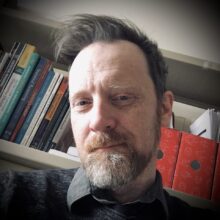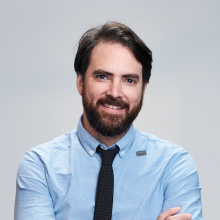Artificial Intelligence and Academic Integrity: Offloading Cognitive Tasks or Overloading Cognitive Skill Development
December 01, 2023 | 2:30 – 4:00 PM
About this event
In this second webinar on Artificial Intelligence (AI) and academic integrity, the speakers will continue the conversation on the challenges AI presents to our current understandings of academic integrity. Drawing on their expertise and experience, Dr. Smith and Dr. Foxe will help us understand the nuanced issues that we, as education professionals, are facing due to the recent spotlighting of AI tools such as ChatGPT. They will provide insights into which aspects of this innovation might be genuinely viewed as threats and which can be viewed as opportunities. Specifically, they will discuss ways in which such tools (like ChatGPT) can be used for academic assistance and when safeguards need to be in place to prevent misuse – i.e., academic misconduct.
Presenter(s)

Brian Smith
Honorable David S. Nelson Professor and Associate Dean for Research, Boston College
Brian K. Smith is the Honorable David S. Nelson Professor and Associate Dean for Research at the Lynch School of Education and Human Development at Boston College, MA. His research interests include the design of computer-based learning environments, human-computer interaction, design sciences, out-of-school learning, and computer science education.

John Paul Foxe
Senior Director of the Centre for Teaching and Learning (CTL), Concordia University
John Paul Foxe is the Senior Director of the Centre for Teaching and Learning (CTL) at Concordia University, where he is responsible for the strategic direction of the CTL along with the Lab for Innovation in Teaching and Learning (LITL). John Paul has spent his entire career working at universities, with a focus on teaching and learning. He is particularly interested in academic integrity, having spent seven years as the Director of the Academic Integrity Office at Toronto Metropolitan University. He holds an MSc and an MA from York University and Toronto Metropolitan University respectively, and a PhD from York University.

Robert Stephans
Philosophy and Humanities teacher at �ǿմ�ý��Ƶ
Robert Stephens teaches Philosophy and Humanities at �ǿմ�ý��Ƶ, and is the current Coordinator of the ALC Arts & Culture Profile. He has a PhD in Philosophy from McGill University, where is dissertation was focused on defending a computationalist theory of human cognitive architecture, in which problems faced in the development of AI are used to help illuminate how the human mind is organized, and how human cognitive limits may in turn be usefully studied to inspire new designs for artificial minds.

Joel Trudeau
Physics Teacher at �ǿմ�ý��Ƶ
In 2009 Joel, along with two other colleagues from �ǿմ�ý��Ƶ and one from John Abbott College received a two year P.A.R.E.A grant to study pedagogy & technology. He is the co-founder and co-director of this web based magazine that explores a multiplicity of topics, always based on a yearly theme, and is interdisciplinary to the core. The goal of S.P.A.C.E. is to expand academic discussion and collaboration beyond the classroom and across the disciplines.




